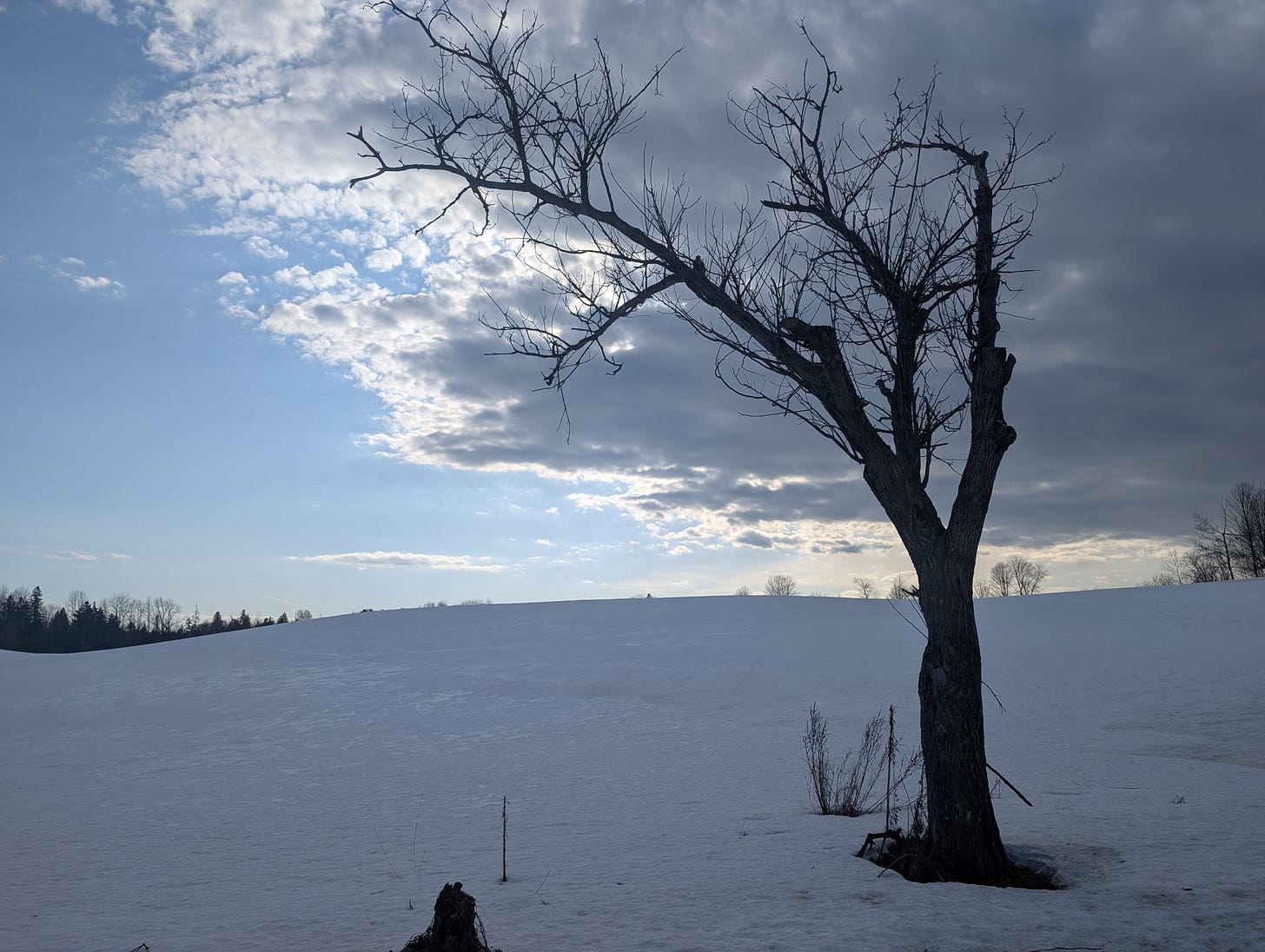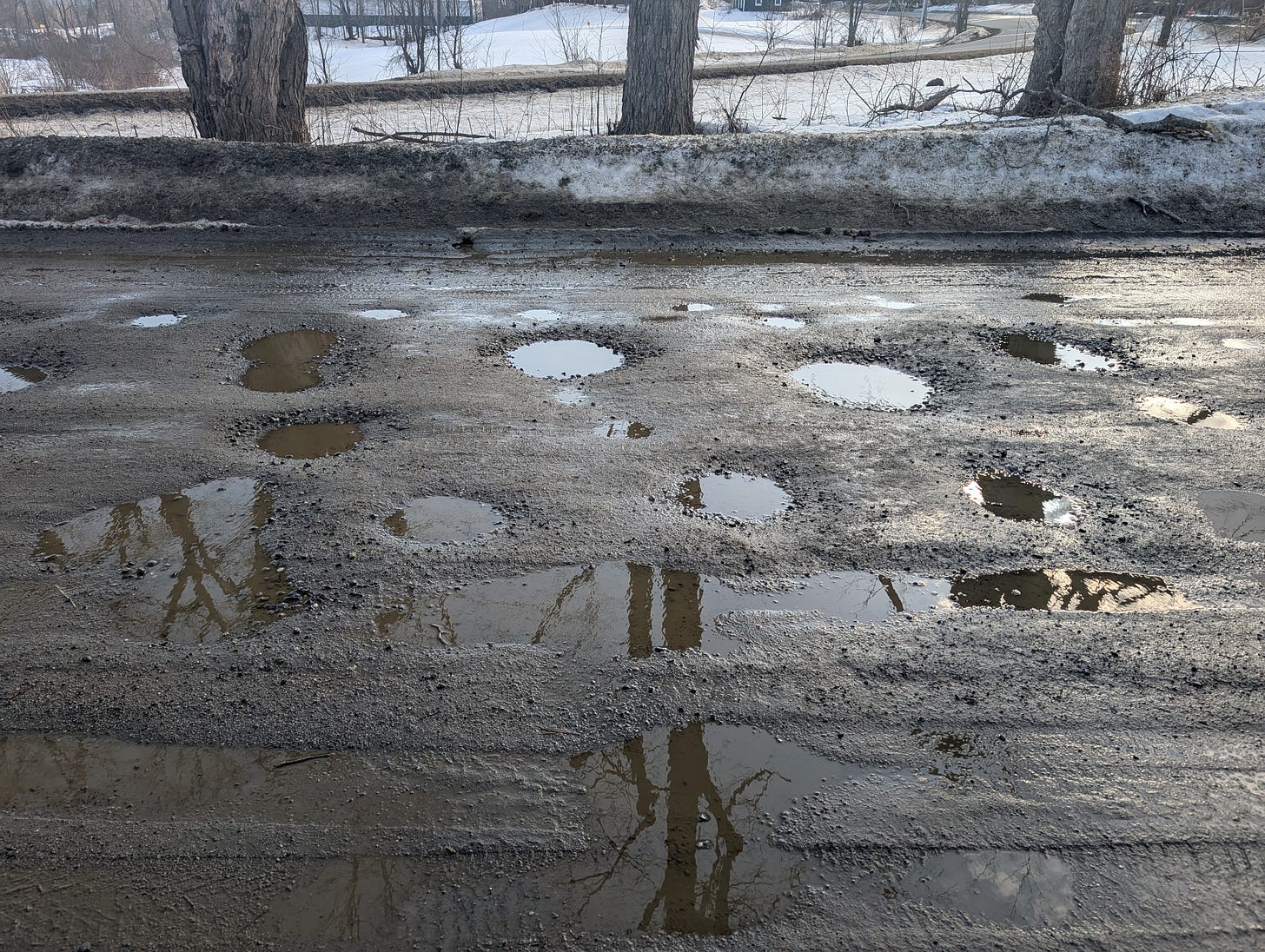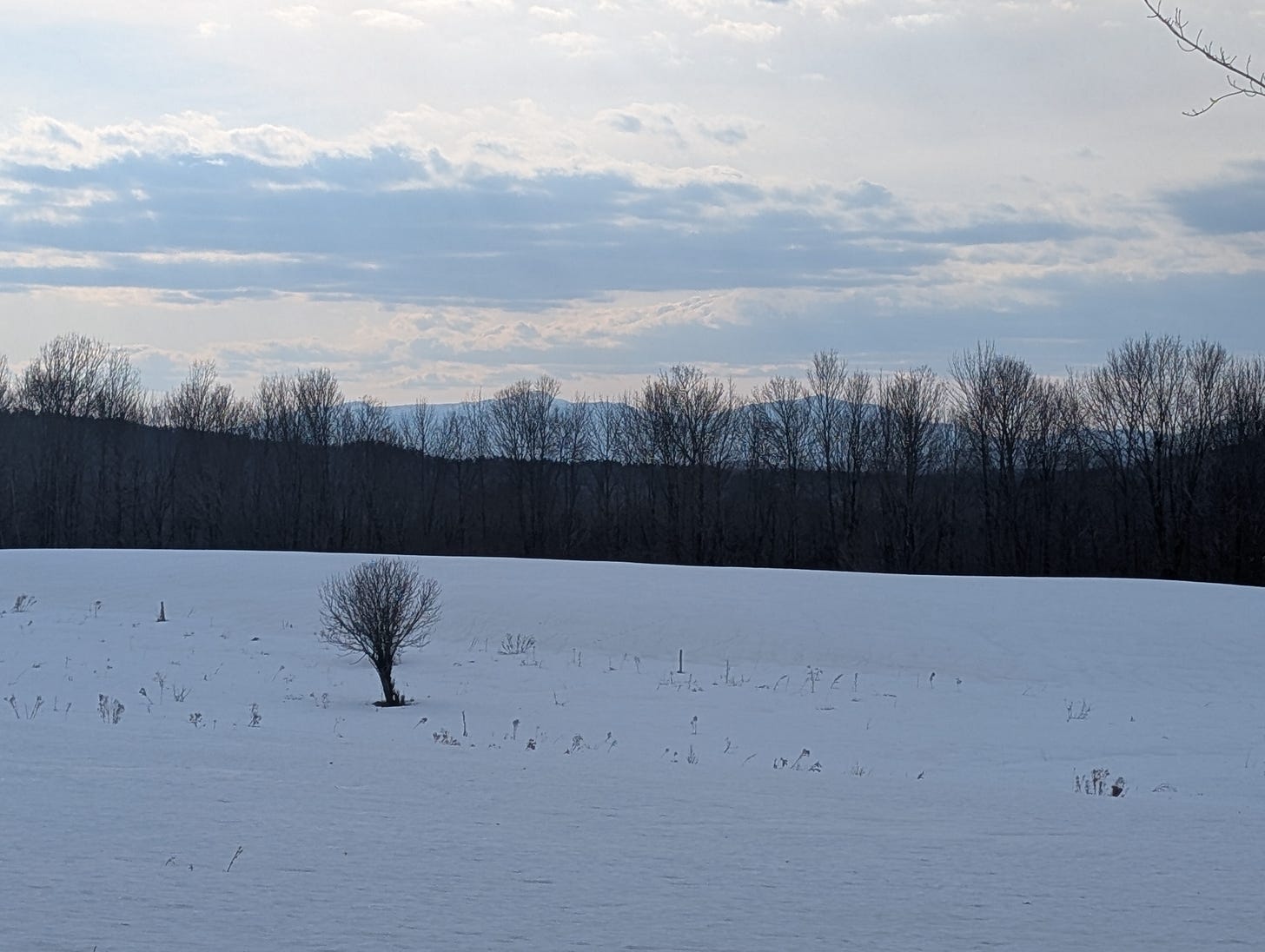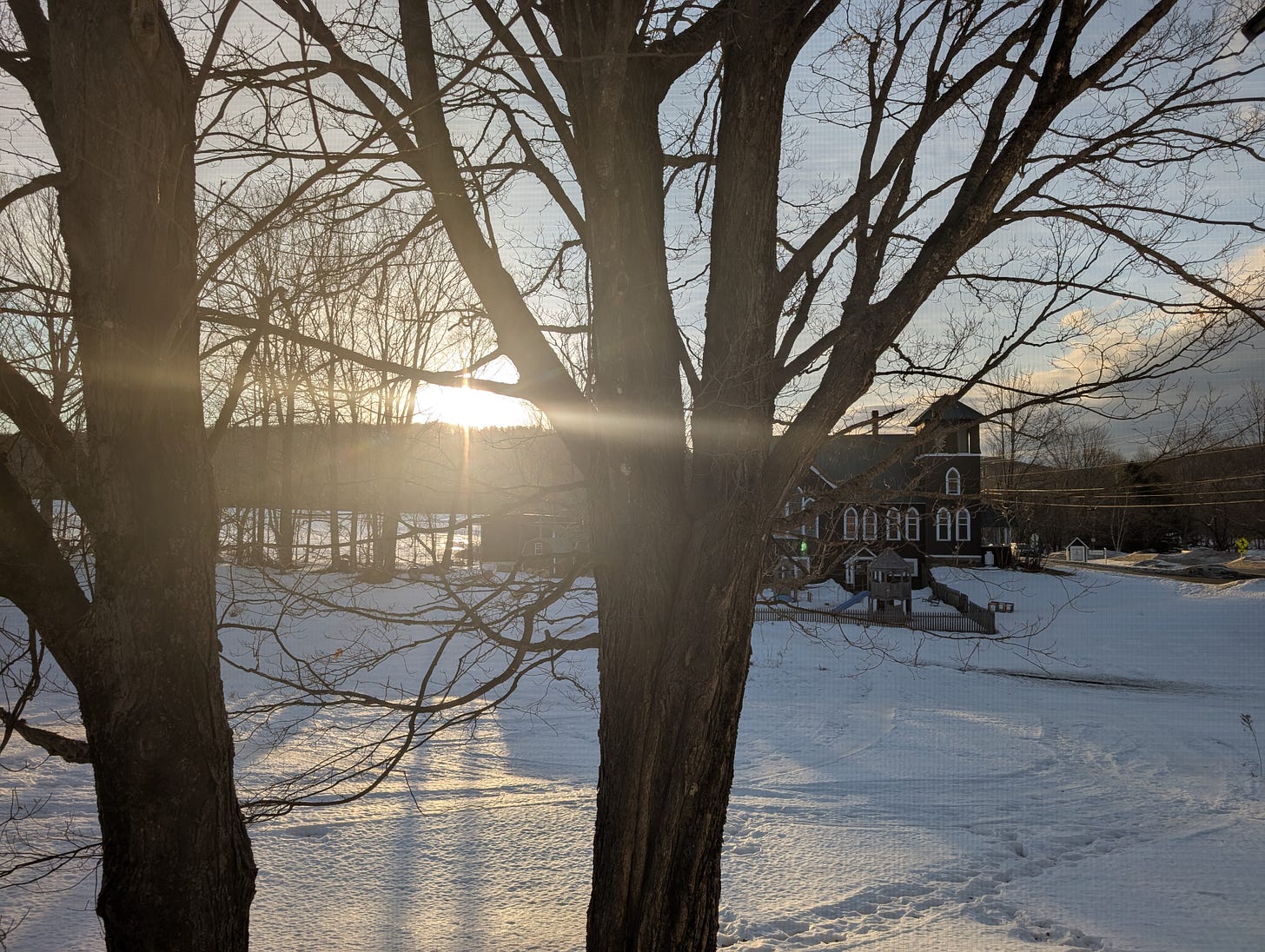Truth and Power
Temptations to fear in the second Sunday in Lent
At that very hour some Pharisees came and said to him, “Get away from here, for Herod wants to kill you.”
He said to them, “Go and tell that fox for me, ‘Listen, I am casting out demons and performing cures today and tomorrow, and on the third day I finish my work. Yet today, tomorrow, and the next day I must be on my way, because it is impossible for a prophet to be killed outside of Jerusalem.’”
“Jerusalem, Jerusalem, the city that kills the prophets and stones those who are sent to it! How often have I desired to gather your children together as a hen gathers her brood under her wings, and you were not willing! See, your house is left to you. And I tell you, you will not see me until the time comes when you say, ‘Blessed is the one who comes in the name of the Lord.’”
Luke 13:31-35
Alongside the above episode from Christ’s prophetic journey, the lectionary brings us several passages on God’s promises and protections this week. Sometimes, it helps the preacher to remember that the psalmist preaches better than anything you can say:
The Lord is my light and my salvation; whom shall I fear? The Lord is the stronghold of my life; of whom shall I be afraid?
When evildoers assail me to devour my flesh—my adversaries and foes—they shall stumble and fall.
Though an army encamp against me, my heart shall not fear; though war rise up against me, yet I will be confident.
One thing I asked of the Lord; this I seek: to live in the house of the Lord all the days of my life, to behold the beauty of the Lord, and to inquire in his temple.
For he will hide me in his shelter in the day of trouble; he will conceal me under the cover of his tent; he will set me high on a rock.
Psalm 27:1-5
As it was, so it is.
But do we believe it?
How can we be as sure as a psalm, as trusting as a holy poem, resting in God’s eternal Sabbath day by day when the price of rest is inflating?
We are in Lent, and in Lent, we are above all trying to live more and more in truth. We walk with Jesus to the heart of his truth, truth which will eventually take him straight to the heart of religious and political power over his people, who now have learned a love and fear of power which has nestled and encoiled itself around their hearts. “Jerusalem, Jerusalem,” Jesus cries, “The city that kills the prophets and stones those who are sent to it!” (Luke 13:34a) He speaks with the prophet’s truth, but also with the prophet’s steadfast faith in the midst of danger. He knows that wherever there is power, there is a resistance to the truth that threatens it, but there is also protection in the Most High.
We talked last week about temptation and how temptation functions, giving us a partial truth for a real need that misses the fuller truth. And if a love of worldly power is always a temptation, its companion temptation is fear of worldly power. Not chocolate; fear.
Fear is a tricky temptation. It gives us partial truth: worldly powers rule over us in their domains. It speaks to real need: those powers threaten our needs, if not physically, then mentally, or financially, or socially, or spiritually.
But temptation of fear misses the fuller truth, the other side of the prophet’s truth: we are protected in Christ’s truth if we but accept it. “How often have I desired to gather your children together, Jerusalem,” he cries again, “As a hen gathers her brood under her wings!” (Luke 13:34b) Here is the seed of David, the Anointed One, echoing those words of his psalm-writing ancestor: “He will hide me in his shelter in the day of trouble; he will conceal me under the cover of his tent.” He will gather you under his wings.
Truth challenges. But truth protects. Fear not. Live in him who is Truth.
Why talk about living in truth now, in Lent, in 2025? Maybe it seems like truth matters less than ever, that what is actually true matters less than what the powers that be want to “will to power.”1 There at least seems to be less shared truth these days, what some call “consensus reality.” We no longer read the same news, watch the same shows, listen to the same music, we are all living in increasingly different realities—thank God for the weather, at least we have something to talk about.
(And truly, even in mud season, thank God for Vermont.)
But however strange and weird these times are, perhaps the abundance of folks suffering what we might charitably call a “challenging relationship to the truth” are not so historically unique. After all, we have Jesus right here showing us how perennial this problem is; the lie trafficking business did not begin yesterday. And as Abraham’s journey shows us, God’s promise did not begin yesterday either.2 his promise to love us and hold us and be more faithful to us than we can ever be to him. No matter what is going on in the world, his truth is just like the old Gloria Patri hymn reminds us, “As it was in the beginning, is now and ever shalt be.”
When we are tempted to fear, we are reminded of the full truth of perfect love that drives out fear,3 “The Lord is my light and my salvation; whom shall I fear? The Lord is the stronghold of my life; of whom shall I be afraid?”
Yes, truth is dangerous, because truth challenges. But truth protects.
Jesus knows that truth is dangerous. As we try to walk with him in the next 30-some days of Lent, hanging back in the shadow of his cross, we will know the temptation to fear all too well. He knew it too, even if he didn’t always show it; sometimes, fear didn’t make it on his appointment calendar because he was too busy taunting Rome’s stooges in that old fox Herod’s court.
Jerusalem, Jerusalem. Why can prophets only be killed in you?
Perhaps because where there is no power—in Israel’s hill country, fishing villages, and deserts, or out here in the hidden hollows of our Northeast Kingdom—the truth is free to live and roam. But the closer you get to the center of power, the more the full truth is violently rejected. It must be, for power must insist on its preference that the truth not be so, lest its empty mandate be unveiled. For that is what power fears and what “apocalypse” means: unveiling, revelation, the arrival of all the truth. It is not good news for those who profit from lies.
But most of us are not in Jerusalem. So what is our excuse for fear? Why do we remain tempted to fear? Why are we so tempted to glory from one another rather than from God (John 5:44), with our functional god being whatever our fleshliness and egoic minds desire, tempting us to be “enemies of Christ” (Phil 3:17-4:1)?
Truth threatens us when we decide in those moments to be enemies of truth and, in doing so, enemies of Christ. Our fear that seeks and fears power forgets the fuller truth that cries to us, “Let me take you under my wings.” Our fear forgets that protection is found in his truth, for deep down, the full truth is not threatening. It is life under his wings, and it is beautiful, and it is simple. The psalms, proverbs, and prophets all liken the ways of evil to “crooked paths,” that is, overly complicated. The ways of truth in the Lord are not always easy, but they are straight, or “level”; they are simple.
Lent is not about making your life more complicated. It is about remembering that life in Jesus can be and should be simpler, a straighter path. Yes, maybe more challenging, but also much more deeply protecting. For even though we may be too frightened, paralyzed, and numb to walk all the way to Jerusalem with our cross in hand, he was not, and he is not, because he has promised us. As his ancestor said, “If my father and mother forsake me, the Lord will take me up. Teach me your way, O Lord, and lead me on a level path.” (Psalm 27:10-11)
For those of us who wish we were in a time of more truth and who yearn to live more and more in truth, he is holding out his wings to you. If you are looking for something practical and Lent-y, take time in your practice to pause and name your fears to God so that he may nail them to his cross as he spreads his feathers around you.
Within believers in every time and place, including this very day, Jesus is walking to Jerusalem. He knows he will die. And yet he walks. And he invites us to walk with him, and however insane this invitation is—and if we have ever had our faith lead us into danger, we know how insane it is—this holy foolishness is glory, glory, glory to him. And he knows we can say yes to living in his truth, even when we are so deeply tempted to fear.
Christ is the truth that both challenges empires and shields us from them. He knows that his day will come when his blood will be spilt, the curtain ripped, the stones fall. He has suffered and will still suffer for your sake. Yet he will rise for your sake, for he will never die. Truth never does.
H/t to Nietzsche.
Genesis 15
1 John 4:18







